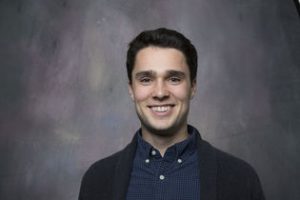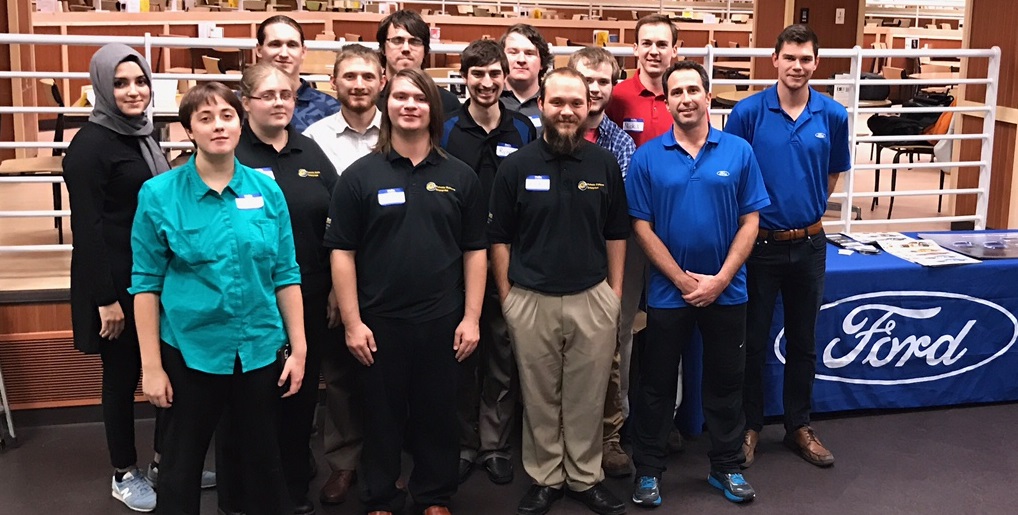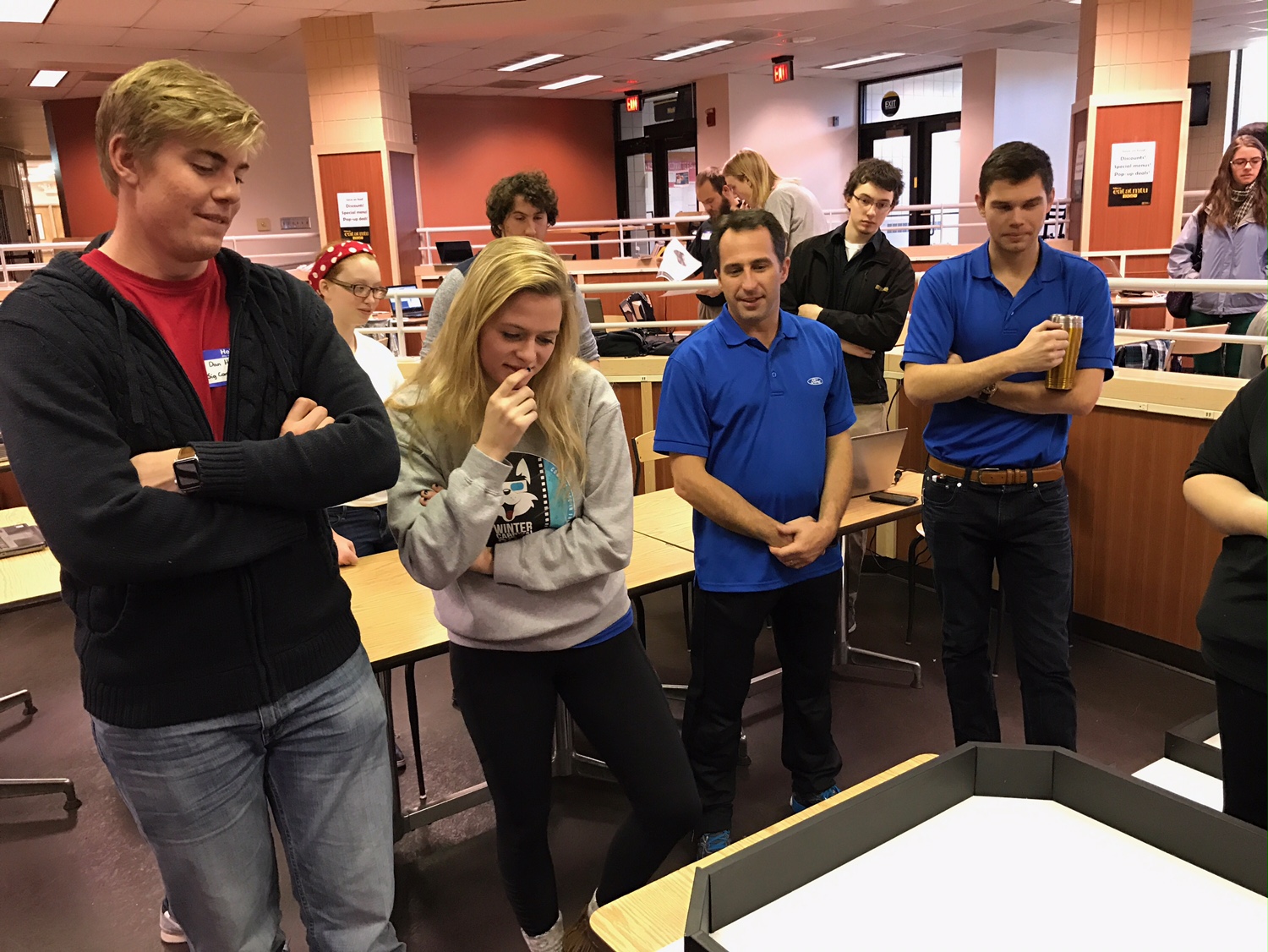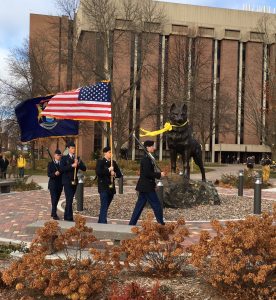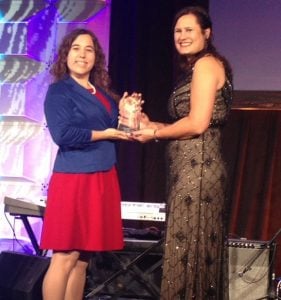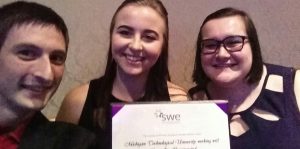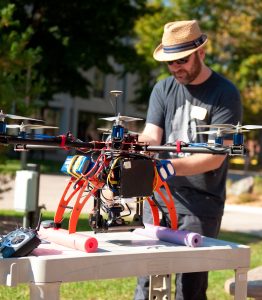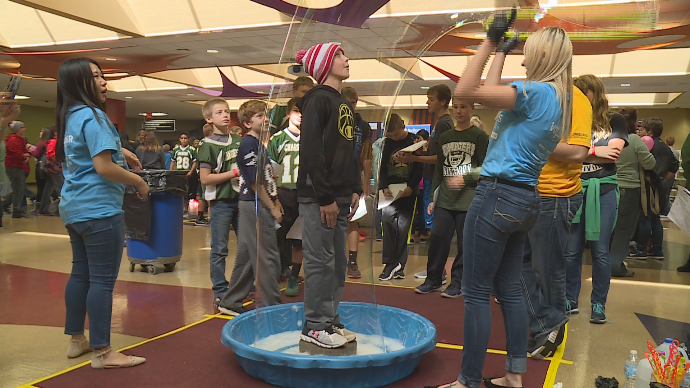 Here we are at the first of December, when thoughts turn to final exams, mid-year commencement, holiday parties (lots of holiday parties) and the winter break. Usually this time of year brings plenty of snow, but not so this year. We have had one of the warmest, driest falls on record, and we are just now starting to get a snow covering that looks like it might stick around for a while. A few more days of this, though, and folks (including me) will be ready to start cross-country skiing. It doesn’t take much. Mont Ripley, Michigan’s downhill ski area, is another story. Last year they opened on Christmas, which was pretty late, and I’m not even sure they are going to make that this year. We have a lot of snow to make up if we are going to hit the Farmer’s Almanac predictions for this year!
Here we are at the first of December, when thoughts turn to final exams, mid-year commencement, holiday parties (lots of holiday parties) and the winter break. Usually this time of year brings plenty of snow, but not so this year. We have had one of the warmest, driest falls on record, and we are just now starting to get a snow covering that looks like it might stick around for a while. A few more days of this, though, and folks (including me) will be ready to start cross-country skiing. It doesn’t take much. Mont Ripley, Michigan’s downhill ski area, is another story. Last year they opened on Christmas, which was pretty late, and I’m not even sure they are going to make that this year. We have a lot of snow to make up if we are going to hit the Farmer’s Almanac predictions for this year!
It takes a great deal of people and organizations, all across the university, to offer a successful educational program in electrical and computer engineering. This week I thought I would give a special mention to Michigan Tech’s Center for Pre-College Outreach. This is the group that is responsible for making sure that we get the message out to middle school and high school students, sometimes even younger, about the excitement and the opportunities in STEM fields. Part of the mission is recruiting for Michigan Tech, to be sure, but there is also a component which provides a tremendous service by getting kids excited about science and technology, no matter where they end up going to college. The Center is run by Cody Kangas; from everything I have seen, Cody and his team are doing a fantastic job.
One of the main events in the Center’s portfolio is something called Mind Trekkers. This is Michigan Tech’s “road show” in which student volunteers go out and fill up large spaces, indoor and outdoor, with experiment and demonstrations designed to get kids excited and have fun. The demos include blowing things up in trash cans, making weird goop with corn starch, freezing balloons with liquid nitrogen, making art with magnets and iron filings, that sort of thing. I was aware of the program and had seen some presentations about it, but I never really understand the scale of one of these Mind Trekker events until I attended one about a month ago at Schoolcraft College, in Livonia, Michigan, as part of a longer trip to southeast Michigan. This was really an eye-opener for me. Schoolcraft is a good-sized community college in the suburban Detroit area, and they were kind enough to open up a large indoor event center, large outdoor area with a tent, and multiple smaller indoor spaces for this event. This one was specifically targeted at middle school students, and there were about 2000 kids bused in from all over the area. I walked around, watched the demos, and picked up on the incredible energy from that of many pre-teens. I was very pleasantly surprised to see many ECE students among the volunteers, and made a special effort to thank all of them for being there. It really gave me new-found respect for all the hard work being done in student-focused areas of the university outside the academic departments.
Another very successful program run out of the Center for Pre-College Outreach is the Summer Youth Programs (SYP). These are programs that bring middle school and high school students to the Michigan Tech campus for a week, sort of like summer camp, and get them engaged in a variety of technical activities. Here we can do things that look a little more like real engineering. The ECE Department participates actively in SYP, due in large part to the hard work of Dr. Glen Archer, Principal Lecturer and Associate Chair of the department. We have also been fortunate for the past several years to have ECE PhD student Jennifer Winikus organizing and delivering a lot of the ECE summer youth classes. Jenn just completed her PhD, and has moved on to a teaching position at the University of Buffalo. I am pretty certain her summer youth experience, as well as her experience as a teaching assistant in our regular undergraduate teaching laboratories, will serve her well in her new position. In addition to his work with summer youth, Glen Archer serves as the faculty mentor for the both the Blue Marble Security Enterprise and the Robotic Systems Enterprise, and he has organized outreach teams in both. Glen is passionate about spreading the word about electrical and computer engineering, and getting our students involved in doing the same. We are lucky to have him – he brings a lot of positive energy to the department.
Hats off and Happy Holidays to all who work on behalf of our current and future Huskies!
– Dan
Daniel R. Fuhrmann, Dave House Professor and Chair
Department of Electrical and Computer Engineering
Michigan Technological University
